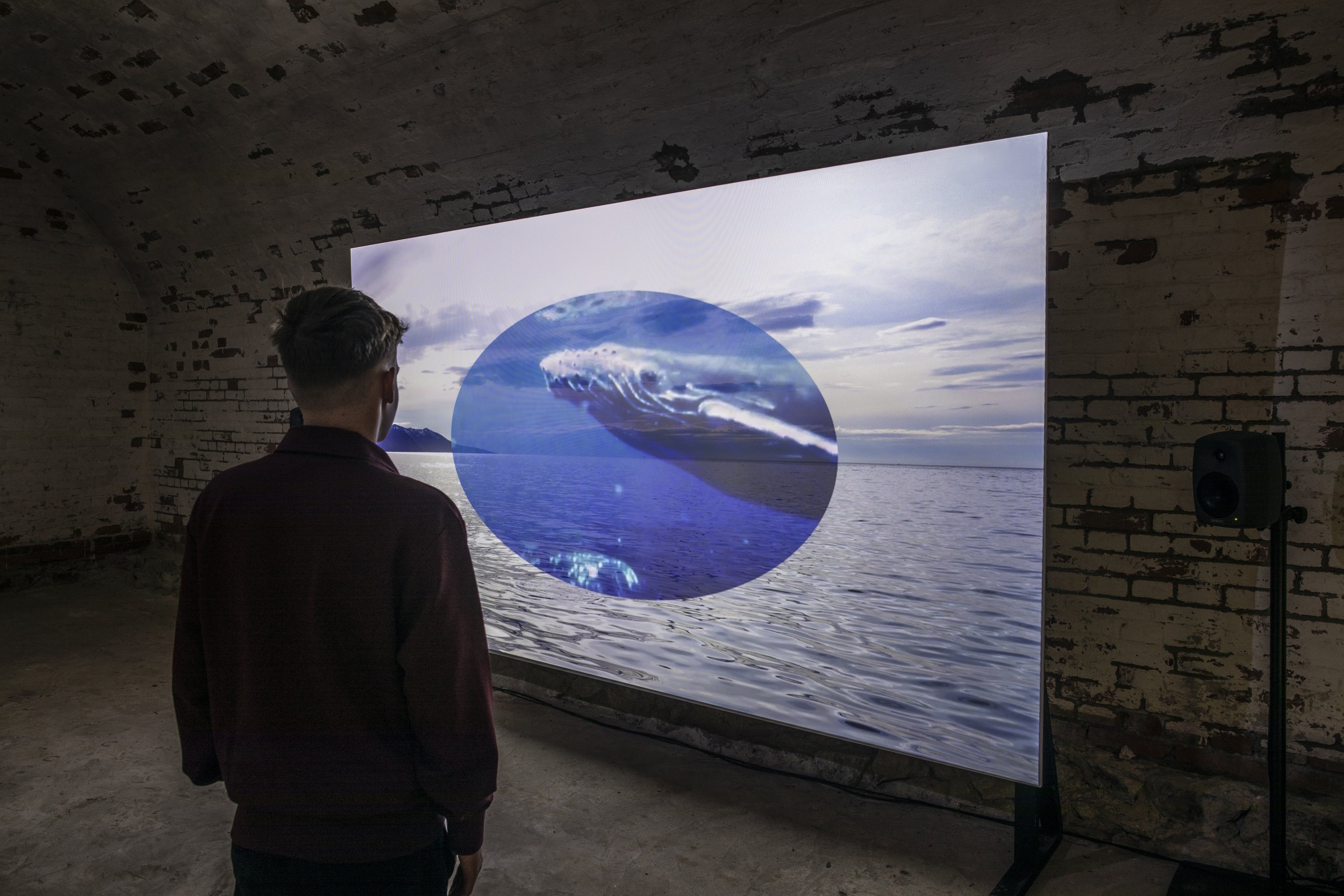Kati Roover (b. 1982) critically examines the challenges of environmental change through a lens of poetic imagination.
Her practice addresses a wide spectrum of thematic concerns: the coexistence of humans and natural non-human worlds, the natural sciences, decolonization, mythopoetic narratives, and hydrofeminism.
Photo: Johannes Vartola

Kati Roover: Songs in the Ocean, 2025, detail.Helsinki Biennial 8.6.–21.9.2025, Vallisaari Island. Photo: HAM / Helsinki Biennial / Maija Toivanen
Songs in the Ocean, 2025
Artwork location: Vallisaari Island
Roover’s video installation delves into interspecies entanglements, especially the connection between whales and humans. The work dives into whale culture, explores the complexities of water and the origins of life, and ponders the slow unfolding of evolution in the midst of an increasingly unstable environment. The whales that inhabit the world’s oceans are mysterious creatures to humans – their culture and reality are unknown to us, yet their lives are subject to constant disruption from humans. Roover believes that oceans can teach us to see the insignificant place that humans occupy in the grander scheme of things, in which every action has inescapable consequences.
The artist takes inspiration from the ‘Leviathan’ myth. The ancient word, meaning to ‘twist’ or ‘encircle’, denotes a whale-lake sea serpent described as a creature hundreds of kilometres long, with eyes that shine like two suns. From its mouth it could send forth heat so intense as to cause all the Earth’s waters to boil. Leviathan is the embodiment of chaos, threatening to annihilate everything in its path. In the modern world, humans are the new Leviathans of the oceans, wreaking havoc and destruction through pollution, noise, ocean warming and acidification. Roover’s version of the old myth is a story about bridging the interspecies gap, rediscovering wonder, and learning to become oceanic.